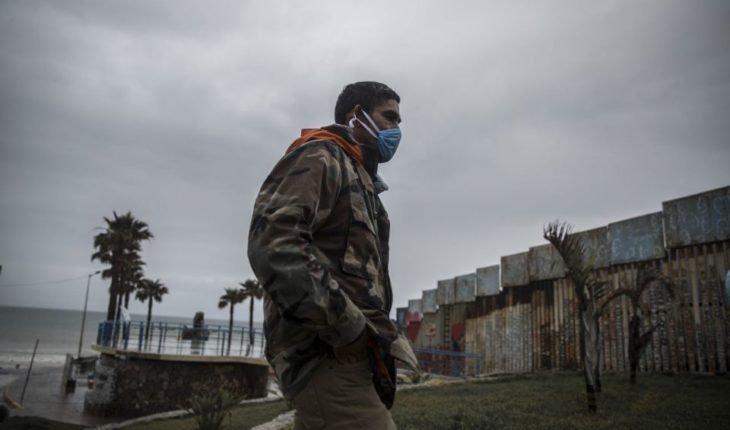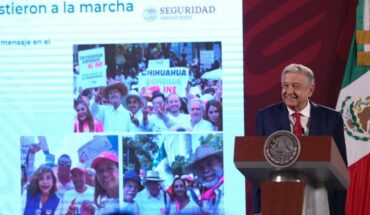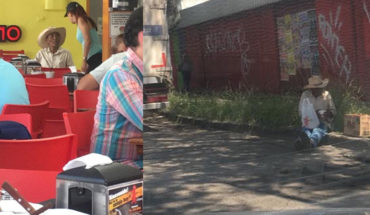CoVID-19’s health emergency halted migration to the United States. According to data from the National Migration Institute (INM) to which Political Animal had access, the number of foreigners arrested because they were in an irregular situation in Mexico collapsed since the beginning of the crisis. In April and what we have been in May, the number of arrested is up to ten times lower than last year.
In March, the INM arrested 7,815 foreigners, while 12,780 were arrested in 2019. This trend was reinforced in April, when 2,625 migrants were arrested. A year earlier, 20,551 people had been intercepted by immigration workers and taken to detention centres. In what we have been in May (the report analyses until 20 this month), the number of arrests fell to 370.
According to INM sources, these statistics take into account both migrants intercepted at controls established in Mexican and Central American territory returned by the United States as soon as they are detained at the border.
Express returns have been on March 21, when Donald Trump, taking advantage of coronavirus protection measures, announced that he would close his borders and return Mexico or immediately deport all those arrested trying to cross. Since then, the protocol has been renewed every 30 days within the border closure measures because of the coronavirus pandemic.
The government of Andrés Manuel López Obrador responded that it would accept not only its fellow citizens, but also Guatemalans, Hondurans and Salvadorans who it receives and locks in immigration stations before expelling them to their countries.
Animal Político documented that these people were expelled by four channels: deporting them, abandoning them on the border with Guatemala, freeing them on the street without resources and with the prohibition of returning to the north or staying them in one of the few civil society shelters that could receive them.
Read: More than 3,600 migrants were deported since the start of the pandemic, according to INM data.
The number of shelter applications also dropped dramatically. Between 1 April and 15 May, a thousand 496 people sought protection from the Mexican Commission for Refugee Aid (Comar). Commissioner Andrés Ramirez explained that the number of paperwork to be protected by the Mexican state fell 86% from last year. Unlike other countries such as the United States, Mexico did not suspend the right to seek asylum for victims of violence.
Pandemic achieves what the National Guard couldn’t
The pandemic has achieved what andrés Manuel López Obrador’s government’s militarization strategy had failed to: almost completely curb the transit of migrants to the United States.
In January, for example, Mexico arrested 12,890 migrants, almost 5 thousand more than the 8,204 that it stopped a year ago. Here the key is the different response that López Obrador’s government had to the caravans that reached the southern border. While in 2019 he handed over 15,000 resident cards for humanitarian reasons in less than ten days, a year later more than two thousand Central Americans were arrested, locked up and deported following the attempted caravan that reached the borders of Chiapas and Tabasco.
In February, the trend was already downwards and 7,947 people were arrested, almost two thousand less than the 10,035 that the INM arrested in 2019.
“The flow has stopped almost completely, now it comes more from the United States,” says Ana Lorena Delgadillo of the Foundation for Justice and the Democratic State of Law.
This NGO, together with other groups such as Imumi, Asylum Access, Alma Migrante AC or Sin Fronteras, promoted various shelters to protect migrants in the context of the COVID-19 pandemic. These legal initiatives were presented in courts of Tabasco, Mexico City, Chiapas, Chihuahua, Tijuana, Veracruz and Nuevo León, to request various authorities to take measures of “access to health, a regular stay, decent housing, as well as the suspension of immigration detentions, and the freedom of persons detained in immigration stations”.
Although six of the protections were accepted, the organizations recently reported that Mexico is not complying with court orders. According to Delgadillo, authorities are not reporting on the whereabouts of the people they detain, nor are they offering guarantees of stay, but are deporting them massively and without even testing them to determine if they fell ill with COVID-19.
One of the requests made by NGOs is to know how many centroamwere returned by the United States and what has been their whereabouts.
The U.S. Customs and Border Protection (CBP) reported that in March 6,444 migrants were returned by the so-called Title 42, which empowers express deportations, and in April 14,416 were expelled. These figures encompass Mexicans and Central Americans.
Chancellor Marcelo Ebrard said he estimated that Guatemalans, Hondurans and Salvadorans are 30% of these expulsions, so between March and April it would be about 4 thousand.
According to this, most of those detained by the INM since the start of the pandemic would be migrants or asylum seekers expelled by the United States without the right to seek protection or to have an immigration process in the north.
The INM also ensures that no migrants have become infected with COVID-19 at its premises. However, four Guatemalan minors tested positive on May 7 after being repatriated from Mexico.
Guatemalan health authorities confirmed to Animal Político that the four, aged between 16 and 17, brought with them a document issued by Mexico in which they ensured that they were asymptomatic. Once they were tested, they realized they had spread the spread. So far no one has clarified whether they have become ill on the way from the border to Quetzaltenango, the Guatemalan municipality to which unaccompanied minors are transferred, or whether it was at the time when they were in the custody of the INM.
What we do in Animal Político requires professional journalists, teamwork, dialogue with readers and something very important: independence. You can help us keep going. Be part of the team.
Subscribe to Animal Político, receive benefits and support free journalism #YoSoyAnimal.
translated from Spanish: By pandemic, the INM halts 10 times less migrant than a year ago
May 23, 2020 |





